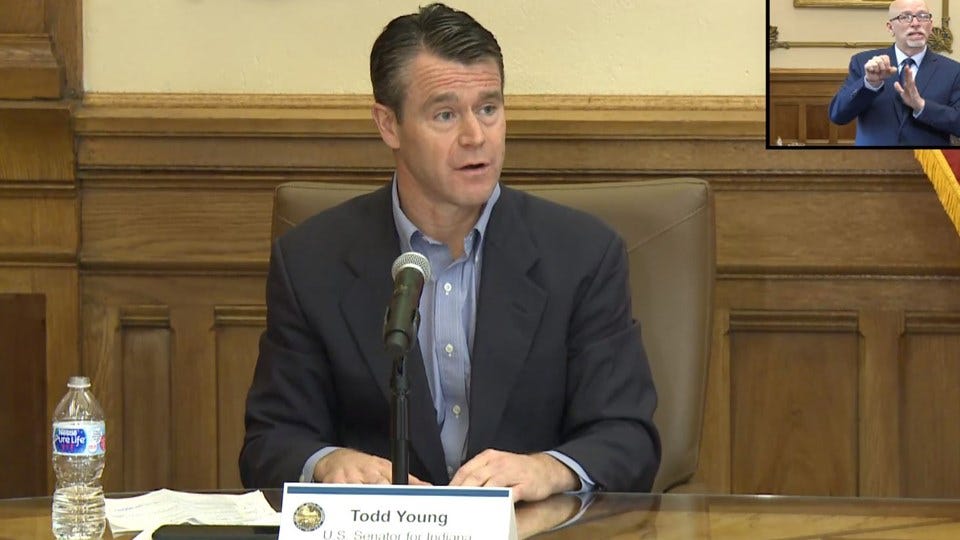Young Authors Bill to Strengthen U.S. Tech Innovation
 Sen. Todd Young was elected to the U.S. Senate in Nov. 2016
Sen. Todd Young was elected to the U.S. Senate in Nov. 2016
Subscriber Benefit
As a subscriber you can listen to articles at work, in the car, or while you work out. Subscribe NowA bipartisan group of lawmakers, including U.S. Senator Todd Young (R-IN), this week reintroduced legislation aimed at strengthening the nation’s competitiveness in terms of scientific and technological innovation. The Endless Frontier Act would increase investments in the discovery, creation, and manufacturing of technology.
Young says the legislation, which he co-authored, would ensure new research investments would translate into American industries, manufacturing, and high-tech jobs.
In an interview with Inside INdiana Business, Senator Young said the legislation is vital for national security and economic competitiveness.
“We want to boldly invest in some cutting-edge technologies, areas like advanced manufacturing, artificial intelligence, quantum computing genomics,” said Young. “This initiative would make these bold investments at a time when the Chinese Communist Party is doubling down on their investments.”
Young warns that on current trend lines, China will surpass the U.S. in terms of the level of sophistication and advancement across some of the key areas.
“We face a pivotal time in history,” said Young. “I’ve worked with my colleagues to ensure the Endless Frontier Act will help invest in innovative small businesses that create jobs, invest in critical emerging technologies, and put America in a position to outgrow, out-innovate, and out-compete our leading geopolitical foe.”
The legislation proposes an expansion of the National Science Foundation, which would include the establishment of a new Technology and Innovation Directorate within NSF to advance research and development in 10 key technology focus areas, including artificial intelligence, semiconductors, quantum computing, advanced communications, biotechnology, and advanced energy.
Young says the directorate would receive $100 billion over five years to invest in basic and advanced research, commercialization, and education and training programs in technology areas.
The bill also calls for the creation of eight to 12 regional technology hubs. Young says the hubs would be placed in areas where there is already existing expertise, such as research universities.
“Those areas will receive disproportionate amounts of investments through their universities and labs, which will lead to a whole lot of venture capital investment in those geographies,” said Young
With institutions, such as the University of Notre Dame, Purdue University, Indiana University, and others, Young thinks Indiana would be a strong contender to land one of the hubs.
“It could be an absolute game-changer for the state of Indiana, for frankly, the next couple of generations,” said Young.
The measure also includes the establishment of a new Supply Chain Resiliency and Crisis Response Program with the national security mission of strengthening critical technology supply chains in the U.S. and with global allies and partners. Young says the pandemic revealed the U.S. is too dependent on foreign nations, especially China, to produce U.S. goods.
The bill is co-sponsored by Senate Majority Leader Chuck Schumer (D-N.Y.), Representatives Ro Khanna (D-Calif.) and Mike Gallagher (R-Wis.).
“Just as we did at the outset of the Cold War, we have to substantially increase federal investment in technologies essential for our national survival. This bill makes a down payment on our national leadership and will translate into new American companies, manufacturing and high-tech jobs,” said Gallagher.
View the bill by clicking here.
In an interview with Inside INdiana Business, Senator Young said the legislation is vital to national security.
